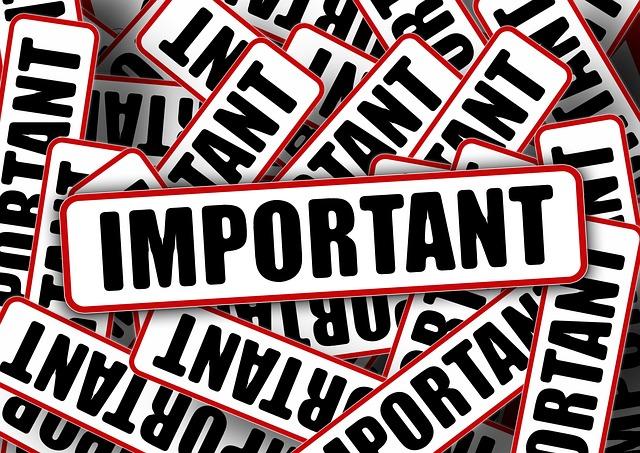How to Write a Brief About Yourself: Summarizing Your Identity Concisely
In a world where first impressions matter more than ever, being able to effectively summarize your identity in a concise and engaging way is crucial. Whether you’re crafting a personal bio for a website, introducing yourself in a job interview, or simply looking to express who you are in a clear and impactful manner, knowing how to write a brief about yourself can make all the difference. In this article, we will delve into the art of summarizing your identity succinctly and confidently, helping you to leave a lasting impression in any situation.
Contents
- Crafting an Introduction that Captures Attention
- Identifying Key Attributes and Achievements
- Focusing on Relevant Experiences and Skills
- Using Clear and Concise Language
- Showcasing Your Unique Personality
- Highlighting Your Values and Passions
- Avoiding Unnecessary Information
- Demonstrating Self-Awareness and Confidence
- Tailoring Your Brief to Your Audience
- Seeking Feedback and Making Revisions
- Insights and Conclusions
Crafting an Introduction that Captures Attention
When it comes to , it’s essential to focus on summarizing your identity concisely. Your introduction is the first impression you make on your audience, so it’s crucial to make it impactful and engaging. Here are some tips to help you write a brief about yourself that will leave a lasting impression:
1. Start with a hook: Begin your introduction with a hook that grabs the reader’s attention and piques their curiosity. This could be a surprising fact, a compelling question, or a thought-provoking statement that sets the tone for the rest of your introduction.
2. Highlight your key achievements: In a few sentences, highlight your key achievements, skills, and experiences that are relevant to the purpose of your introduction. This will give your audience a quick overview of who you are and what you have to offer.
3. Keep it concise: It’s important to keep your introduction brief and to the point. Make every word count and avoid unnecessary details or jargon that may confuse or overwhelm your audience.
4. End on a strong note: End your introduction with a strong closing statement that leaves a memorable impression. This could be a call to action, a personal anecdote, or a summary of your main points that reinforces your identity and captures the attention of your audience.
Identifying Key Attributes and Achievements
One of the most important aspects of writing a brief about yourself is identifying your key attributes and achievements. This is essentially a snapshot of who you are and what you have accomplished. When summarizing your identity concisely, it’s crucial to highlight the most significant aspects that define you as an individual.
Here are some tips on how to effectively identify your key attributes and achievements:
Highlight your strengths: Make a list of your strengths, skills, and qualities that set you apart from others. This could include things like leadership abilities, communication skills, technical expertise, or creative talents.
Showcase your achievements: Outline the most significant accomplishments in your personal or professional life. This could be awards you’ve won, projects you’ve successfully completed, goals you’ve reached, or obstacles you’ve overcome.
- Quantify your successes: Whenever possible, use numbers or data to quantify your achievements. For example, instead of saying you increased sales, mention that you boosted sales by 20% in a year.
In summarizing your identity concisely, remember to focus on the attributes and achievements that best represent who you are and what you have to offer. By being clear and concise, you’ll be able to create a compelling brief about yourself that effectively communicates your unique identity.
Focusing on Relevant Experiences and Skills
When it comes to summarizing your identity concisely, it’s important to focus on the most relevant experiences and skills that showcase who you are as a person. Highlighting specific achievements and qualifications can help paint a clear picture of what sets you apart from others.
One way to effectively communicate your strengths is by creating a list of key experiences and skills that align with the message you want to convey. This can include notable accomplishments, relevant coursework, certifications, or unique talents that demonstrate your expertise in a particular area.
By organizing this information in a clear and structured manner, you can present yourself in the best possible light. Utilizing bold formatting or bullet points can help draw attention to the most important details, making it easy for others to quickly grasp the essence of who you are and what you bring to the table.
In summary, when crafting a brief about yourself, focus on highlighting the experiences and skills that are most pertinent to your identity. By presenting this information in a concise and organized manner, you can effectively showcase your strengths and make a memorable impression on others.
Using Clear and Concise Language
When crafting a brief about yourself, it is crucial to use clear and concise language to effectively communicate your identity. By following these simple tips, you can summarize who you are in a brief and impactful way:
Focus on your key attributes: Highlight the most important aspects of your personality, skills, and background. Choose adjectives and phrases that truly capture the essence of who you are.
Keep it short and sweet: Aim to keep your brief about yourself brief. Avoid including unnecessary details or convoluted language. Succinctness is key when trying to make a lasting impression.
Use active language: Utilize active verbs and dynamic language to convey your strengths and accomplishments. This will help to create a sense of energy and engagement in your brief.
- Tailor your message: Customize your brief depending on the audience or purpose. Make sure your language is appropriate and resonates with the people you are trying to reach.
In conclusion, mastering the art of in your brief about yourself can make all the difference in how others perceive you. By focusing on key attributes, keeping it short, using active language, and tailoring your message, you can effectively summarize your identity in a powerful and memorable way.
Showcasing Your Unique Personality
Whether you’re applying for a job, writing a bio for your website, or introducing yourself at a networking event, it’s essential to be able to showcase your unique personality in a concise and engaging way. Your brief about yourself should capture the essence of who you are and what sets you apart from others. Here are some tips on how to write a compelling summary of your identity:
- Start by identifying your key attributes and strengths. What makes you stand out? Is it your creativity, problem-solving skills, or passion for learning? Highlight these qualities in your brief to give a clear picture of who you are.
- Use language that reflects your personality. Whether you’re witty, professional, or laid-back, make sure your writing style aligns with how you want to be perceived. Avoid using generic phrases and cliches – instead, infuse your brief with your unique voice.
- Share relevant experiences and achievements. Give examples of projects you’ve worked on, skills you’ve developed, or goals you’ve achieved. This will help others understand what you bring to the table and why you’re a valuable addition to their team or network.
- Keep it concise and to the point. Aim for a few sentences that capture the essence of who you are. Remember, brevity is key when it comes to making a strong first impression. Use bullet points if needed to break up information and make it easier to digest.
Crafting a brief about yourself is an opportunity to showcase your unique personality and make a lasting impression on others. By following these tips, you can summarize your identity concisely and confidently, leaving others with a clear understanding of who you are and what you bring to the table.
Highlighting Your Values and Passions
In the "" section, it is crucial to showcase what truly matters to you in a concise and impactful manner. This is your opportunity to shine a spotlight on the values and passions that drive you and make you unique. When crafting this part of your brief about yourself, consider the following:
Be Authentic: Your values and passions are an integral part of who you are, so be genuine in highlighting them. Avoid trying to impress others with values that don’t truly resonate with you.
Keep it Concise: While it’s important to convey the depth of your values and passions, remember to keep it brief and to the point. Use clear and concise language to communicate what matters most to you.
Show, Don’t Just Tell: Instead of simply listing your values and passions, provide examples or anecdotes that illustrate how they have shaped your actions and decisions. This will help others better understand the depth of your convictions.
- Connect with Your Audience: Consider how your values and passions align with the values of the audience you are addressing. Tailor your message to resonate with them and foster a deeper connection.
When done effectively, can leave a lasting impression on those who read your brief about yourself. It is a powerful way to communicate who you are at your core and set yourself apart from others.
Avoiding Unnecessary Information
When summarizing your identity in a brief about yourself, it is important to avoid including unnecessary information. By focusing on key details and highlighting your most relevant traits, you can create a concise and impactful summary of who you are. Here are some tips on how to avoid including unnecessary information in your self-summary:
- Stick to the essentials: Only include information that is directly relevant to your identity and the purpose of the brief.
- Avoid rambling: Keep your summary clear and to the point, avoiding long-winded explanations or unnecessary details.
- Focus on your unique qualities: Highlight what sets you apart from others, without delving into unnecessary background information.
- Use bullet points: Organize your key points in a clear and easy-to-read format, making it easier for others to grasp your identity quickly.
By following these tips, you can write a brief about yourself that effectively summarizes your identity concisely, without including unnecessary information that could detract from your key message.

Demonstrating Self-Awareness and Confidence
When it comes to , one of the most important skills you can master is the ability to write a brief about yourself. Summarizing your identity concisely not only helps you understand yourself better but also allows others to quickly grasp who you are as a person. Here are some tips to help you craft a compelling brief about yourself:
- Identify Your Core Values: Start by identifying the values that are most important to you. This could be integrity, creativity, empathy, or any other value that guides your actions and decisions.
- Highlight Your Strengths: Focus on your strengths and unique qualities that set you apart from others. Whether it’s your problem-solving skills, communication abilities, or leadership qualities, make sure to showcase what makes you special.
- Share Your Achievements: Don’t be shy about sharing your accomplishments. Whether it’s a project you successfully completed, an award you received, or a goal you achieved, make sure to highlight your wins.
| Core Values | Strengths | Achievements |
|---|---|---|
| Integrity | Problem-solving skills | Project completion |
| Creativity | Communication abilities | Award received |
By following these tips, you can effectively summarize your identity in a concise and compelling way. Remember to stay true to yourself and be confident in the unique qualities that make you who you are.

Tailoring Your Brief to Your Audience
When writing a brief about yourself, it is crucial to tailor your message to your audience to ensure maximum impact and engagement. By customizing your content to resonate with the specific needs and interests of your target audience, you can increase the chances of your message being well-received and understood. Here are some tips on how to effectively tailor your brief to your audience:
- Know your audience: Before crafting your brief, take the time to research and understand your audience’s demographics, interests, and preferences. This will help you determine the appropriate tone, language, and content to include in your message.
- Highlight relevant information: Focus on presenting information that is most relevant and valuable to your audience. Highlight key achievements, skills, or experiences that align with their needs and expectations.
- Use language and tone: Adapt your language and tone to match the communication style of your audience. Whether you are addressing a professional or casual audience, choose words and phrases that resonate with them.
- Provide solutions: Clearly articulate how your identity, skills, or experiences can benefit your audience. Offer solutions to their challenges or problems, and demonstrate how you can add value to their lives or work.
By , you can effectively communicate your identity in a concise and compelling manner. Remember to keep your message clear, relevant, and engaging to make a lasting impression on your readers.
Seeking Feedback and Making Revisions
When crafting a brief summary about yourself, it’s crucial to seek feedback from others to help refine your message and ensure it resonates with your audience. Receiving input from peers, mentors, or professionals in your field can provide valuable insights and perspectives that you may have overlooked.
After gathering feedback, it’s essential to make revisions to your brief to address any areas that need improvement or clarification. This may involve rephrasing sentences for clarity, adding or removing information to better convey your identity, or restructuring the overall flow of the summary.
Consider the following tips when to your brief about yourself:
- Solicit feedback from multiple sources: Seek input from a diverse group of individuals to gather a range of perspectives on your summary.
- Focus on clarity and conciseness: Ensure that your brief is easy to understand and free of unnecessary details or jargon.
- Be open to constructive criticism: Embrace feedback as an opportunity for growth and improvement, rather than as a reflection of your abilities.
Insights and Conclusions
In conclusion, crafting a brief about yourself is a valuable skill that can help you effectively communicate your identity in a concise and impactful manner. By focusing on key aspects such as your background, experiences, and goals, you can create a powerful summary that highlights your unique qualities. Remember to keep it authentic, engaging, and tailored to your audience. So go ahead, put these tips into practice and confidently showcase your identity in a clear and concise way. Your brief about yourself will surely grab the attention of others and leave a lasting impression. Happy writing!







